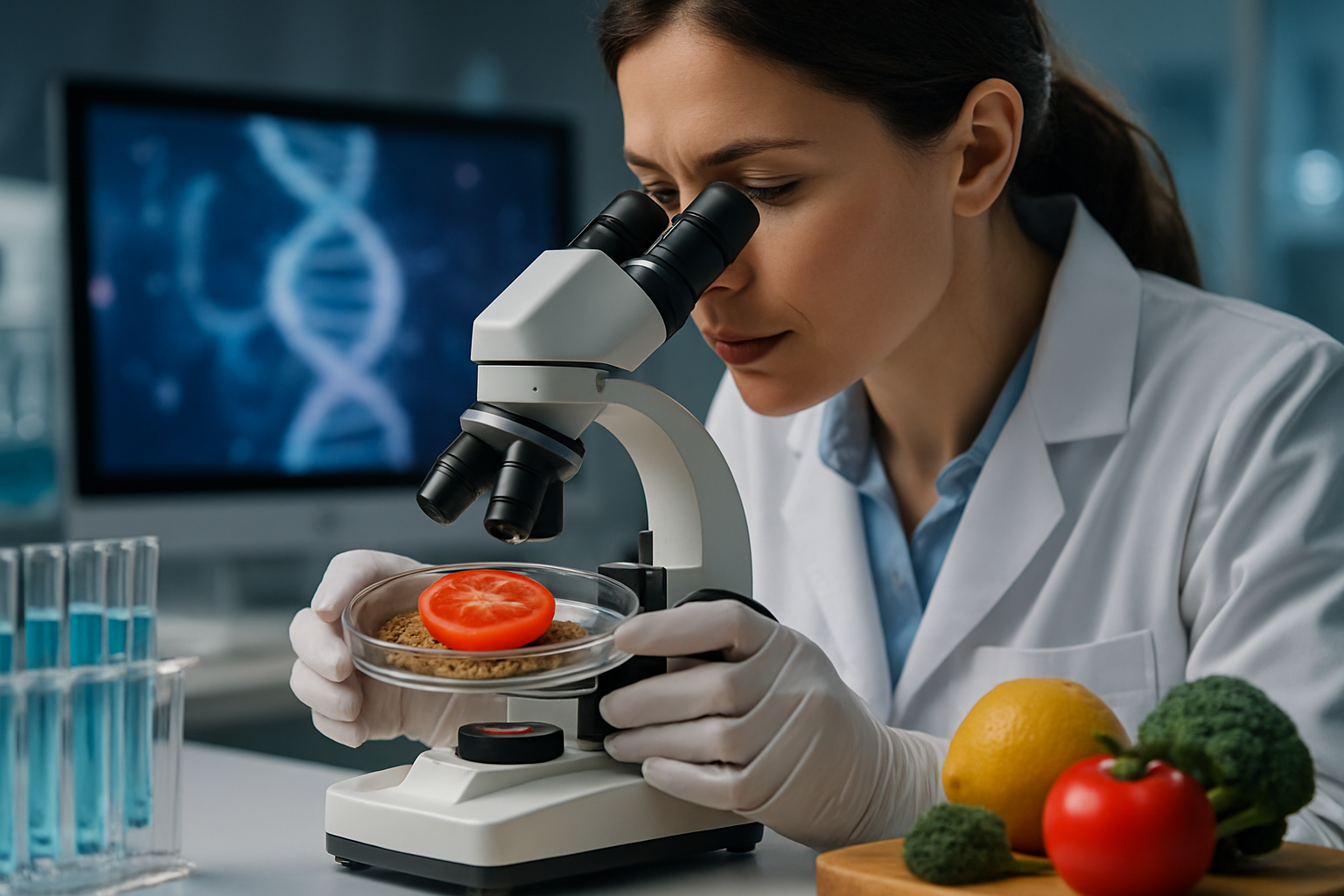Epigenetic Dieting: Tailoring Nutrition to Your Genetic Blueprint
Imagine a world where your diet is perfectly tailored to your genetic makeup, optimizing your health and well-being in ways never before possible. This isn't science fiction—it's the cutting-edge field of epigenetic dieting. But what exactly is this revolutionary approach to nutrition, and how can it transform your health journey?

The Science Behind Epigenetic Dieting
Epigenetics, the study of changes in gene expression that don’t involve alterations to the genetic code itself, has opened up new avenues in nutritional science. These changes can be influenced by various factors, including diet, stress, and environmental exposures. In the context of nutrition, epigenetic modifications can affect how our bodies process nutrients, metabolize food, and respond to different dietary patterns.
Research has shown that certain foods and nutrients can directly impact gene expression, potentially activating genes that promote health or suppressing those associated with disease. This dynamic interaction between our genes and our diet forms the foundation of epigenetic dieting.
Personalized Nutrition: Beyond One-Size-Fits-All
Traditional dietary guidelines have long followed a one-size-fits-all approach, but epigenetic dieting turns this notion on its head. By analyzing an individual’s genetic profile, health practitioners can now develop highly personalized nutrition plans that cater to a person’s unique genetic predispositions.
For instance, some individuals may have genetic variations that affect their ability to metabolize certain nutrients. An epigenetic diet plan would take these variations into account, recommending specific foods or supplements to compensate for these genetic differences and optimize overall health.
Key Components of an Epigenetic Diet
An epigenetic diet typically focuses on several key areas:
-
Nutrient-dense foods: Emphasizing foods rich in vitamins, minerals, and phytonutrients that can positively influence gene expression.
-
Antioxidant-rich foods: Including a variety of colorful fruits and vegetables to combat oxidative stress and support cellular health.
-
Methylation support: Incorporating foods high in B vitamins and other nutrients that support proper DNA methylation, a crucial epigenetic process.
-
Personalized macronutrient ratios: Tailoring the balance of proteins, carbohydrates, and fats based on individual genetic profiles.
-
Timing of meals: Considering the body’s natural circadian rhythms and how they interact with gene expression.
The Role of Nutrigenomics in Epigenetic Dieting
Nutrigenomics, the study of how nutrients interact with our genes, plays a crucial role in epigenetic dieting. This field helps identify how specific nutrients can influence gene expression and, consequently, our health outcomes.
Advances in nutrigenomic research have revealed that certain compounds in foods can act as epigenetic modifiers. For example, sulforaphane found in cruciferous vegetables has been shown to have cancer-protective effects by influencing gene expression. Similarly, resveratrol, a compound found in red wine and grapes, has been linked to longevity-promoting gene activation.
Implementing an Epigenetic Diet: Challenges and Considerations
While the concept of epigenetic dieting is promising, implementing it on a wide scale presents several challenges. Genetic testing, while becoming more accessible, is still not universally available or affordable for everyone. Additionally, interpreting genetic data and translating it into actionable dietary advice requires specialized knowledge and expertise.
It’s also important to note that our understanding of gene-nutrient interactions is still evolving. As research in this field progresses, recommendations may change, requiring flexibility and ongoing education for both practitioners and individuals following epigenetic diets.
The Future of Epigenetic Dieting
As technology advances and our understanding of epigenetics grows, the future of personalized nutrition looks incredibly promising. We may soon see:
-
More sophisticated genetic testing methods that provide even more detailed insights into individual nutritional needs.
-
AI-powered meal planning tools that can instantly generate personalized diet plans based on genetic data and lifestyle factors.
-
Wearable devices that track real-time epigenetic changes in response to diet and other environmental factors.
-
Integration of epigenetic dieting principles into public health policies and dietary guidelines.
Fascinating Facts About Epigenetics and Nutrition
-
Maternal diet during pregnancy can influence the epigenetic profile of offspring, potentially affecting their health in adulthood.
-
Certain foods, like broccoli and garlic, contain compounds that can “switch on” tumor suppressor genes.
-
The field of epigenetics suggests that we have more control over our genetic destiny than previously thought, with diet playing a crucial role.
-
Epigenetic changes can be reversible, meaning that dietary interventions can potentially “undo” negative epigenetic modifications.
-
The emerging field of “culinary genomics” combines chef-driven cuisine with nutrigenomic principles to create meals that optimize genetic expression.
Epigenetic dieting represents a paradigm shift in how we approach nutrition and health. By harnessing the power of our genetic code and understanding how it interacts with our diet, we can unlock new levels of personalized wellness. As research in this field continues to evolve, we stand on the brink of a new era in nutrition—one where our plates become powerful tools for optimizing our genetic potential and achieving peak health.






